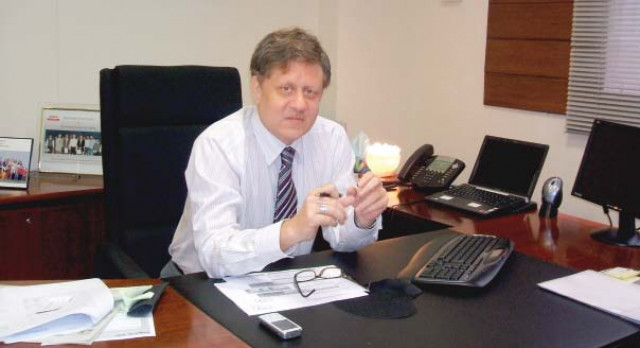A place to shop for everything, but only for a few
Hyper stores have emerged across the major cities of Pakistan over the last decade.

Although the concept of cash and carry stores – which offer products ranging from groceries to electronics – has been prevalent in the developed world for many years, it is a relatively new phenomenon in developing economies.
But despite the massive size of stores and the significant number of customers who shop at these outlets every day, hyper-marts have so far managed to capture only a miniscule share of the market.
More importantly, they have yet to make their presence felt in rural areas of the country – home to majority of Pakistan’s population.
“We have registered more than 300,000 regular customers but there is a lot of potential for business growth,” declared Managing Director Makro-Habib Jamal Mustafa Siddiqui in an exclusive interview with The Express Tribune.
“All cash-and-carry stores across the country are catering to only two or three per cent of the population,” he estimated.
The Dutch store Makro started operations in Pakistan back in 2006 with a single outlet in Karachi. In 2008, the Dutch firm pulled out and the House of Habib, a local business concern, acquired complete ownership of the company.
Today, Makro boasts five stores in Pakistan – three in Karachi and two in Lahore – and enjoys a market share of about 40 per cent in the hyper-store industry.
The MD said the store caters to the cities of Karachi and Lahore, attracting a large number of buyers. “On average, we receive around 2,500 customers daily.”
Hyperstar and Metro are two other known names in the Pakistani market.
How it works?
“High volume and low margin is our slogan,” said Siddiqui. “The primary objective of cash and carry stores is to provide customers with quality products at low prices.”
Siddiqui explained that cash and carry stores incentivise retailers to purchase products from them by offering more competitive rates than wholesalers.
In contrast, distributors and wholesalers offer goods on credit to shopkeepers but recover the margin by selling at higher rates.
Makro has also introduced its own brands of electronics, stationery, beverages and kitchen items. It also offers meat products at its outlets and has diverged from the more popular concept behind cash-and-carry stores.
“Unlike other hyper stores, we offer discounts on the sale of even a single unit,” he said, pointing out that this attracts end-consumers, mostly families, to the stores. About 47 per cent of Makro’s clients are ‘end-consumers’.
The MD concluded that the chain has a transparent way of doing business and it paid Rs1.11 billion in sales tax during 2009-10.
Published in The Express Tribune, September 16th, 2010.



















COMMENTS
Comments are moderated and generally will be posted if they are on-topic and not abusive.
For more information, please see our Comments FAQ